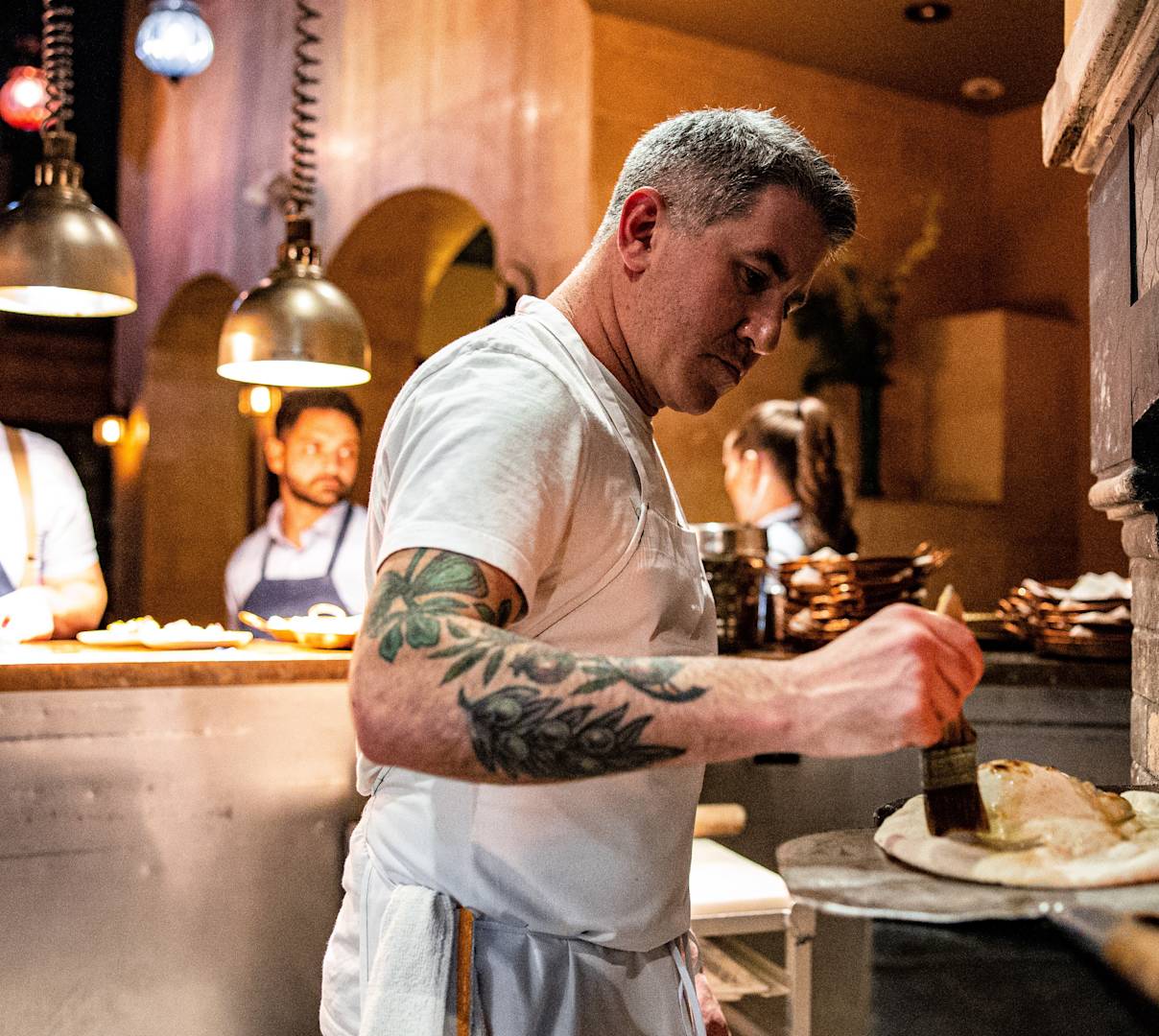Mike Solomonov is a James Beard Award-winning chef, author of three cookbooks, and co-owner of the Philadelphia restaurant group CookNSolo.
The restaurateur is well-known for his success in multiple ventures, such as Zahav, a modern Middle Eastern restaurant, and Federal Donuts, which serves up donuts, coffee, and fried chicken.
As Chief Restaurant Advisor for DoorDash, Solomonov recently joined the Restaurant Advisory Council (RAC) for an intimate fireside chat, where he shared his thoughts on building a culture of hospitality. Below are a few highlights of his advice for fellow restaurateurs.
Facing labor challenges with a focus on upward mobility
Solomonov freely admits that hiring and retention are ongoing challenges for his business. "Finding the right people and giving them tools to succeed — that's been the hardest thing in the past few years and that will be the hardest thing in the next five years," he said.
But at the core of CookNSolo’s mission are people — from employees to customers to Dashers — and the power of creating positive experiences for them. Putting people at the center is a large part of Solomonov's corporate ethos.

"Hiring, training, and building teams right now is not as easy as it was five or ten years ago. So that's our #1 challenge: finding the right people to put in place and building our teams responsibly."
He emphasized employee upward mobility as a key contributing factor for business growth: "We look at revenue, we look at sales, but really, we look at the way to position our employees and upward mobility for them. And that's what determines our growth."
Solomonov talked about the importance of developing and extending a culture of hospitality throughout his business. "Our principle is to make people feel good," he said. "Leadership is tremendously important to set the tone. We're in service — we're always trying to exceed expectations for guests."
Generosity and hospitality go hand in hand
Showing that generosity is a core value to his business, he explained how he often gives away food to create a positive experience for guests, despite potential negative impact on the bottom line.

"For me, the point of having generosity in the ethos and the culture of the restaurant is that everybody understands that I'm willing to do literally whatever it takes to make people happy. It empowers all of our employees, who understand that service is of the utmost importance."
DoorDash's role in operations and in extending the culture of hospitality
Solomonov shared his appreciation for partnering with third parties like DoorDash instead of managing deliveries in-house. "We're too busy, we don't have the space to package and expedite, and our takeout location is in a concentrated area where many people come in and out. So delivery — even though we would totally crush it — is just the sort of circus for the kitchen that is not worth the cost," he explained. "By relying on DoorDash, it's essentially added revenue with a minimal effort."
He also noted that the value of DoorDash goes beyond the operational benefit, saying that the right partner can help bring the restaurant's ethos to off-premise customers.

"Our principle is to make people feel good doing whatever it takes — whether it's good service, good food, or ambiance. When DoorDash is involved, it's making sure that our service and our brand mission extend into the home."
Solomonov has worked to build a positive environment for Dashers inside his restaurants, encouraging staff to treat them with kindness and respect rather than viewing them as third-party service providers.
"If a Dasher comes in, and the first thing you do is greet them and say hello and then offer them a glass of water, the likelihood of them having a positive experience with your business is so much more positive. And that means a better experience for the guests," he explained.
The challenge of restaurant communication
Solomonov knows first-hand that ongoing open communication is crucial for restaurant operations. He shared how his staff of 475 and management team of 70 use technology tools to stay in touch throughout the workday on everything from sales figures to VIPs in the dining room.

"We are Slacking throughout the day, and we usually revisit the big things with structured emails and follow-ups. We also use Shift Notes daily, and there are things that we discuss ad nauseam."
In addition to technology tools, Solomonov places a high value on in-person communication, especially as it relates to building company culture. He schedules time for his employees to spend with one another while not working.
"We've noticed that our managers in particular like having a lunch where we can just talk about nothing," he said. "Hanging out has been so important, and we feel like that kind of camaraderie and socializing helps us have a better product."
The role of organizational structure and training
Solomonov has learned a few lessons along the way about the value of organizational structure for his restaurants and the importance of remaining agile. "We have an org chart that we tear down and revisit every fifth or sixth quarter to see if there's a better way to do something," he said.

"We initially structured our company pretty loosely, never thinking we'd be as big or need as much HR or corporate oversight — but that looseness became a hindrance in the last couple of years. We've since hired a Director of Operations, and that has been the right thing."
Training plays an important role in building a culture of excellence as well. Formal certification is part of each restaurant employee handbook and each individual's onboarding. Follow-ups, check-ins, and regularly scheduled meetings with staff members also play important roles.
"Every position in our company requires something different," he said. "Servers require about four to five shifts in training, and then they're mentored for another five shifts, and then they're on the floor. Line-level chefs are probably two weeks, and then managers require mentorship that usually lasts multiple weeks. But we also keep in mind that everybody kind of has their own style."
Always putting people at the center
Treating people with generosity, kindness, and respect is a major part of how Solomonov approaches his business. By prioritizing a positive experience for guests, staff, and Dashers, Solomonov has built a strong restaurant brand that drives loyalty, growth, and profits across multiple locations.
Learn more about DoorDash's Chief Restaurant Advisor program or sign up for DoorDash to see how offering pickup and delivery can extend your restaurant's culture to a wider community.





